If you like to sneak late-night snacks, then a squeaky carpet floor can give you away. So how do you fix a squeaky floor under the carpet? We have laid out the steps to help you with this problem!
To fix a squeaky flooring under the carpet, follow these steps:
- First, you need to locate the floor joists in the squeaky area. Then, use a stud finder to find the floor joists.
- Mark the joist down with two nails or any small finishing nail so you can return to this area quickly.
- Place two screws (8 inches apart) between the floor joists using a power drill. Ensure that the screws are long enough that the head is still sticking out of the carpet.
- Once the screws are drilled into the flooring, break off the top of the screws using a screw gripper.
Squeaky carpet floors can be an everyday annoyance. That's why in this article, we will take a closer look at how to fix this problem. In addition, we will discuss what causes squeaky floors under carpet, so read on!
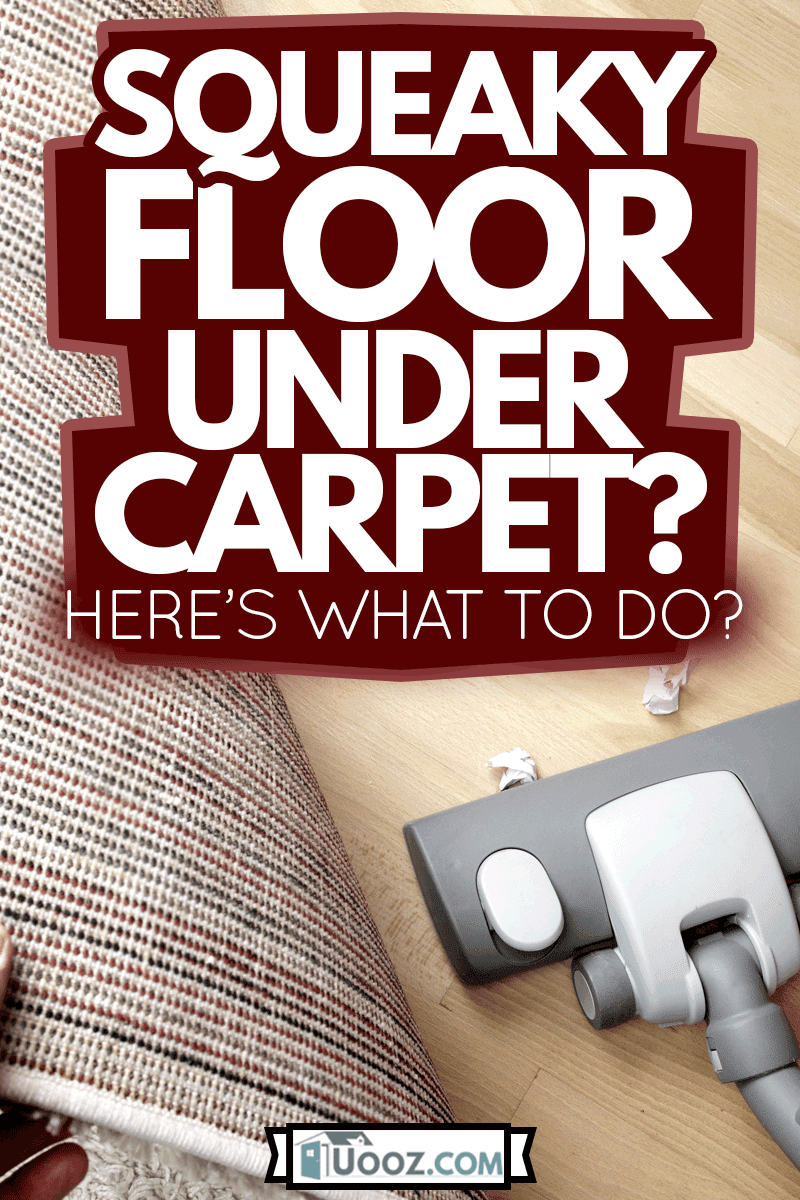
Squeaky Floor Under Carpet? Here's What To Do
If you have a squeaky floor under the carpet, your first concern is to determine where the squeaky area is.
Using a stud finder to locate the joists in a room can easily track down the problem areas. In addition, it also helps you easily mark them down for future reference. Once you have marked the joists, fixing the squeaky floor under the carpet is relatively easy.
Using a power drill, you can easily create some screws that are long enough to go through the carpet. Use screws that are half threaded and have smooth at the shoulder. This will ensure that the screw will attach to the sub-flooring.
Place two screws 8 inches apart between these joists. Ensure that the screws are still sticking out of the carpet once they have been screwed incorrectly.
Once this is done, use your screw gripper to break off the pointy end of the screws. Doing this will ensure that the screw will not scratch anyone who passes by or steps on this part of the carpet.
In addition to this, make sure that your carpet is absolutely flat and securely nailed down. Now, test your carpet to see if it squeaks. If it still squeaks in some areas, then repeat the process until the squeaking goes away.
If the problem persists, then it is worth calling in a professional.
What causes squeaky floors under the carpet?
There are various reasons why you have a squeaky floor under the carpet. This is because many factors can contribute to this happening.
One of the main reasons this happens is due to the age of the carpet. As the carpet ages and endures heavy traffic, the carpet sub-floor will have gaps separating it from the floor joists.
Another reason this happens is that the sub-flooring or the sub-sub-flooring is not level. Sometimes, this happens when water damage occurs below your carpets and causes expansion. Ultimately, this can lead to a separation of the plies and cause it to either lift or curl.
Most of the time, when a floor is squeaky, it means that there is some dirt or debris in between the boards. This can be easily fixed by adding more nails and gluing down loose flooring pieces.
In addition to this, you may also have a warped floorboard in the room. To fix this, you will need to remove the loose carpet and replace the warped floorboard.
Lastly, if your house is made of wood, you may have a thicker, less pliable subfloor. This means that nothing is attaching the subflooring to the joists, leading to squeaky floors under carpets. You can solve this problem by fastening plywood or other materials to the subfloor to make it sturdier.
Should I worry about squeaky floors?
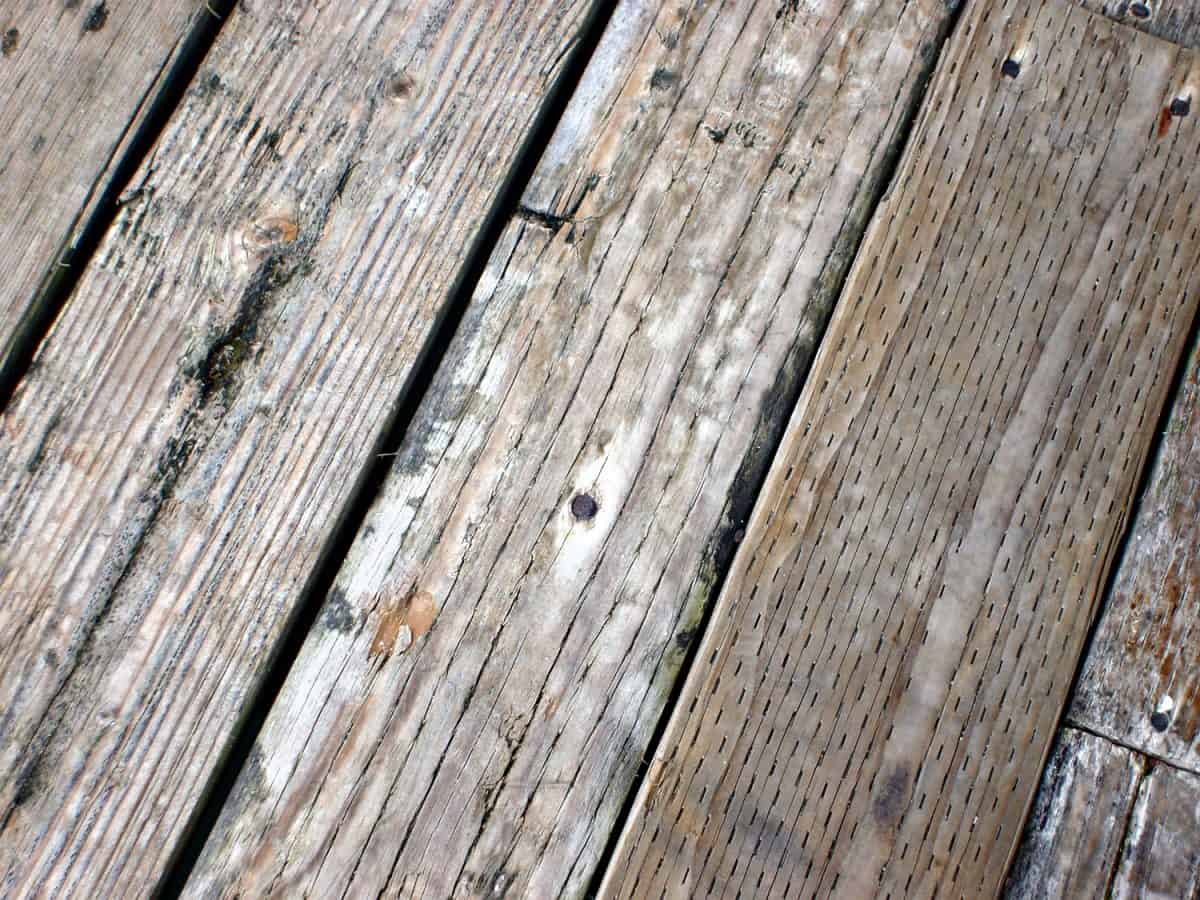
No! You shouldn't worry about squeaky floors because the noise is not very loud. You should only be worried when your flooring has become wobbly and starts to bow in certain spots.
This is not something that should be a significant concern for all homeowners. However, if the problem gets worse, you need to go ahead and fix it as soon as possible.
How much does it cost to fix a squeaky subfloor?
Fixing a squeaky subfloor can be as much as $200 to $1000. However, several variables come into play when determining a price quote. For example, the size of the room and how many rooms are affected.
If you live in a large home with several squeaky floors, then this may cost more than average to fix. In addition, It can depend on how much the contractor charges per hour for the job.
Depending on what region you live in can change the cost per hour. Therefore, it is worth doing some research on your own before hiring someone to fix the issue. In addition, you can try to fix the problem yourself for a fraction of the cost.
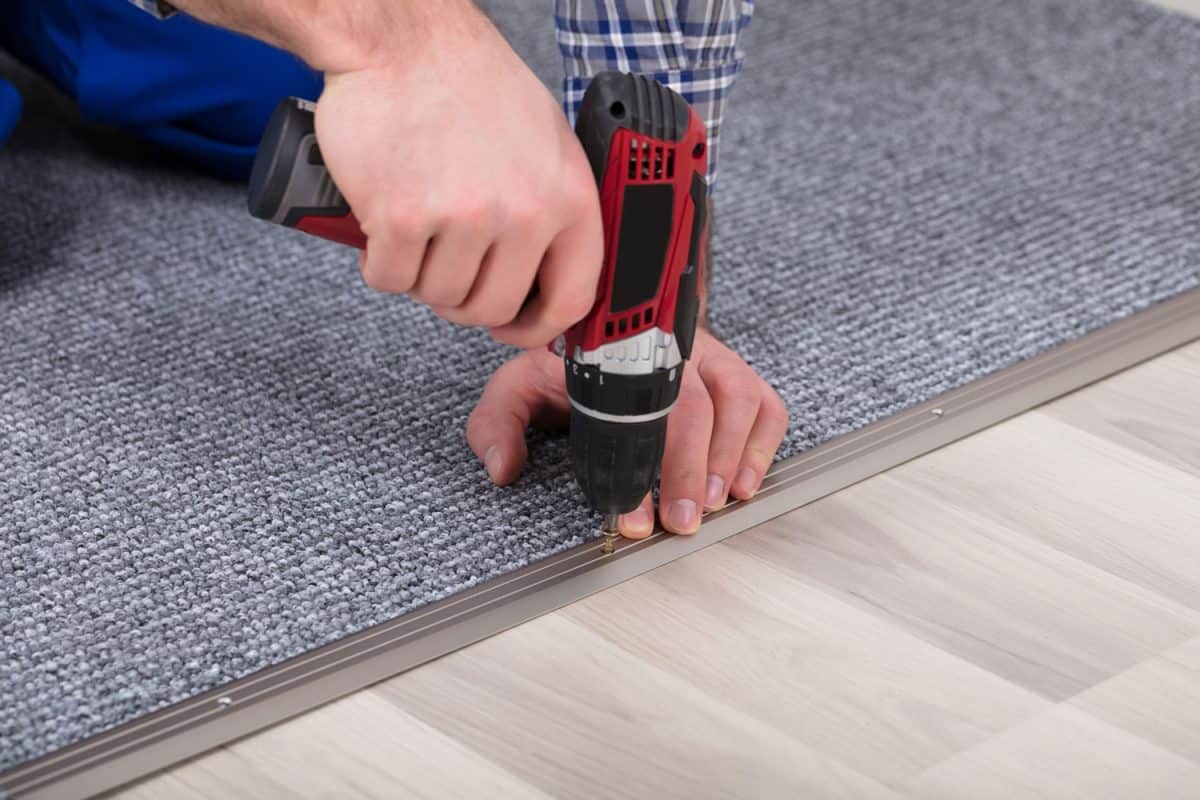
Will carpet installers fix squeaky floors?
Yes, carpet installers can help you with squeaky floors. If it is the same company that installed the carpet in the first place, then they might even do it for free. However, some installers may charge a minimal fee for this service.
In addition to this, you can also do it yourself if you have some basic carpentry knowledge and equipment on hand. The squeaks must be fixed as soon as possible before they cause further damage to your home.
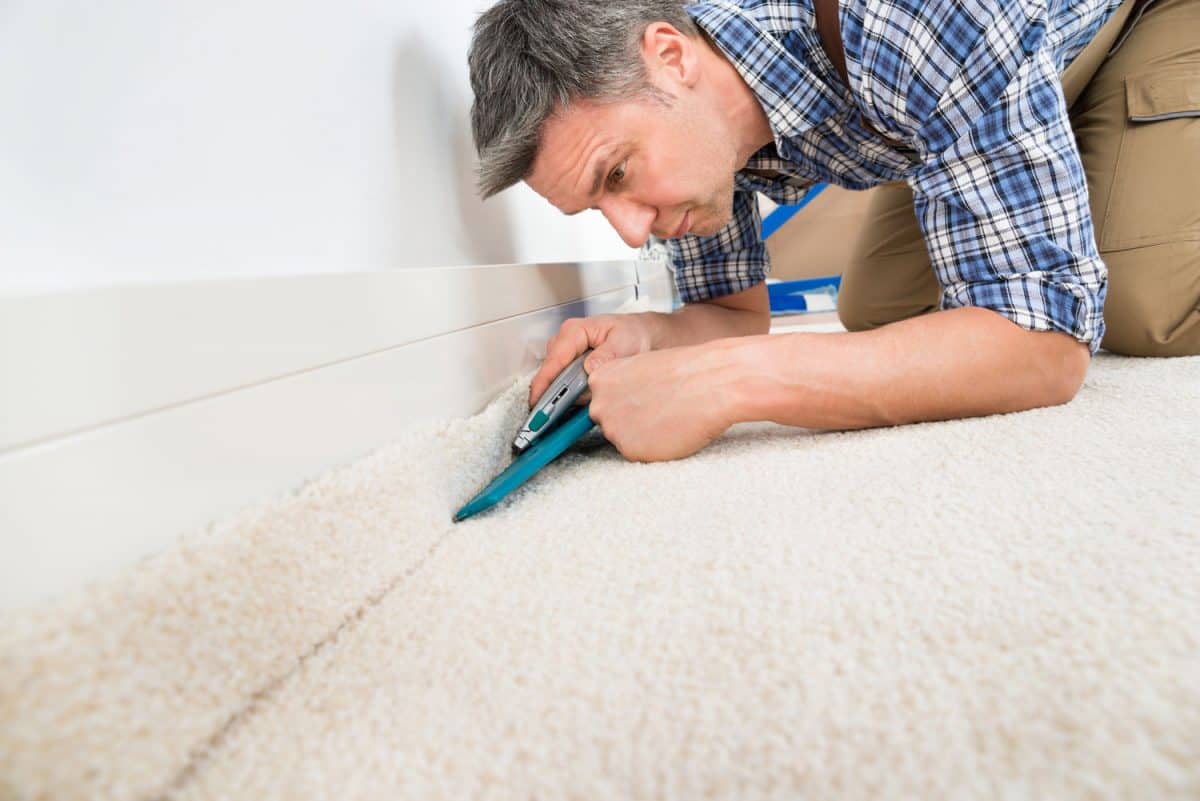
How long does carpet last?
Depending on the quality of your carpet, it can last between 5 and 15 years. When it comes to the quality of your carpet, several things can influence this.
For example, if you have kids or pets in your house, then this means that you need a higher quality carpet. Also, whether or not it is installed on top of hardwood floors will determine its longevity.
Typically, the thicker the carpet is, the longer it will last. This is because instead of having a single ply or fiber for each strand of yarn, you have two plies woven together, making it twice as strong as normal.
In addition to this, if your carpet has been properly maintained and cleaned regularly, it can also increase its life.
However, you can increase the lifespan of your carpet by taking good care of it.
This means vacuuming it regularly and having professional cleaners come in at least once a year. In addition, it is also important not to damage the fibers in any way because this will cause significant problems down the road.
How do I know if my sub-floor needs to be replaced?
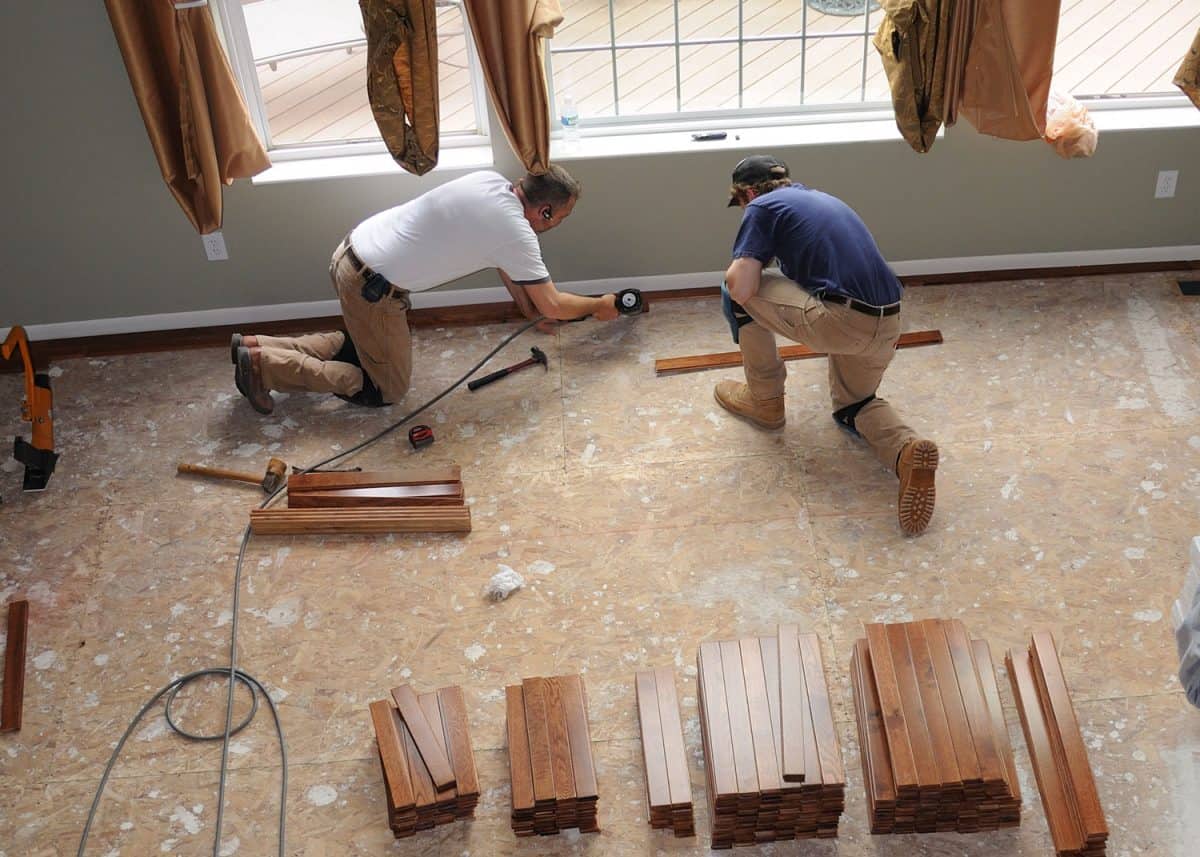
Sometimes squeaky floors are a sign of more significant problems with your sub-floor. If you tried fixing the squeaking floors on your own, but it doesn't fix the problem, or it gets worse, then you need to watch for these other warning signs:
Musty Smell in Room
If there is a musty smell from the room, this could be caused by moisture. This can cause significant problems, including mold underneath your sub-flooring.
Wobbly Floorboards
This problem is not as common as squeaky floors, but it can happen in some cases. For example, if you notice that your floorboard becomes wobbly, this can also mean problems with your sub-floor.
Floors Have a Bounce to Them
If you find that the floor bounces when walked on, then there might be too much give to it. This can be a sign of water damage and other problems underneath the sub-flooring.
Buckling Floorboards
If you notice your floorboard start to buckle or ripple upwards, then this is another sign of water damage and possible sub-floor damage.
Floors are Uneven
If your floor is not entirely level and has dips and valleys, this can be a sign of problems underneath the sub-flooring.
In some cases, it can also mean that your joints do not line up correctly, so they need to be adjusted accordingly. However, if you notice these warning signs, you should get your sub-floor checked out by a professional.
If you are selling your home, then if the sub-floor is damaged, this can cause problems for potential buyers to come to see your house. If they do end up buying it, but the sub-floor needs replacement, then you could be held liable for any future.
Final Thoughts
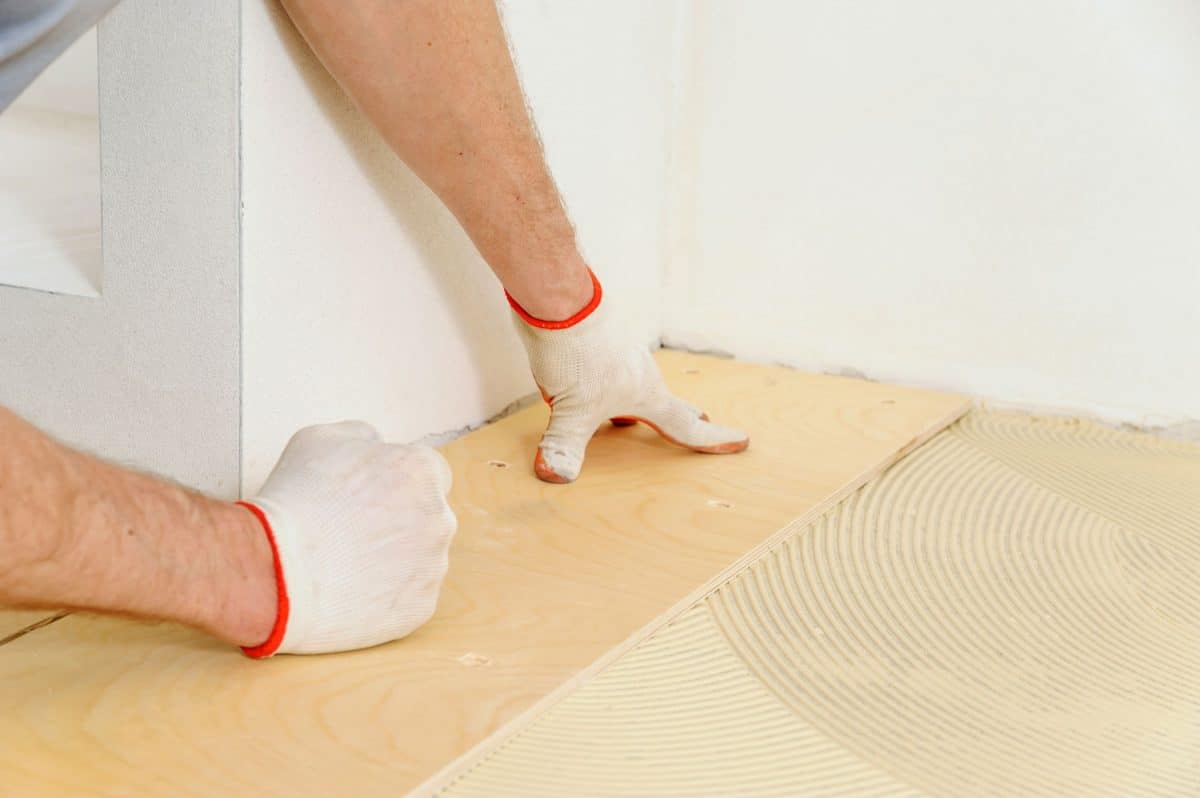
Squeaky floors are not always a sign of something significant. Several things can cause this problem, but it is best to get these issues fixed as soon as possible before they become more serious. If you go for the DIY route, you must know how to do it properly and keep your family safe.
For more articles on flooring, then check out our website:
How Long Does Wood Flooring Last?
How To Fill Knot Holes In Wood Flooring
How Thick Is Wood Flooring? [Including Natural Hardwood And Engineered Wood]
